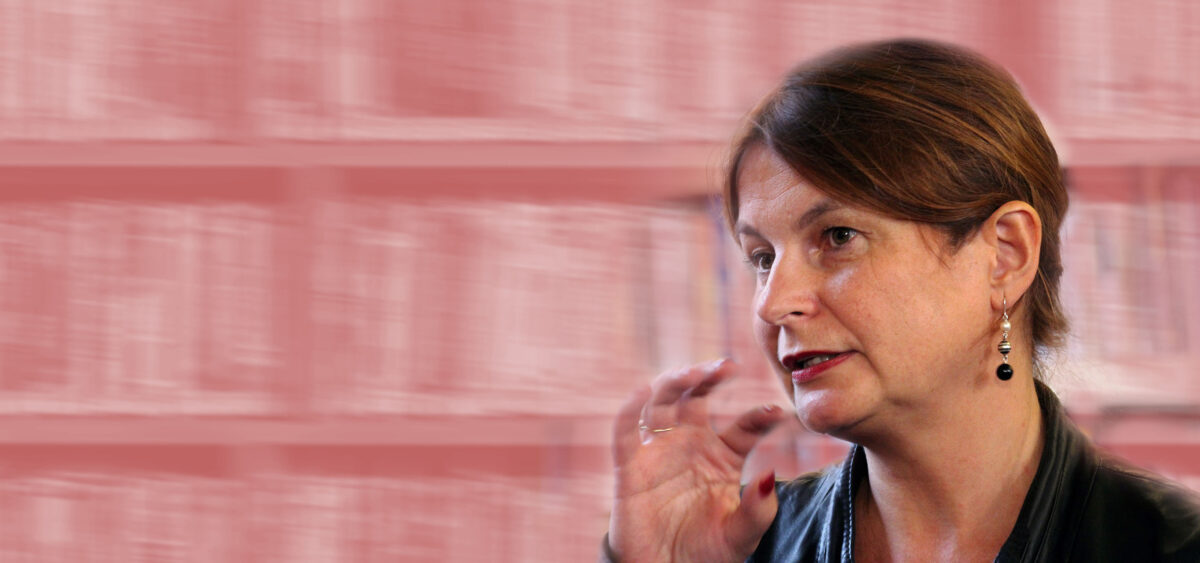
Anita Musioł talks to Czech writer Radka Denemarková about feminism, exclusion, and the role of women in her novels “A Contribution to the History of Joy” and “Kobold”. Anita Musioł: In A Contribution to the History of Joy you write: “Men do what they like. In another life, would you like to be born a man? I would like to be born as a free person.” Does this mean that women are not free people, that they cannot be free?
Radka Denemarková: I think that we often don’t realize that women are not really free because they are not treated as such. My parents taught me that if I was smart the world would belong to me, but then I started my life as an adult in the real world, and I thought what is this? Where am I and what is going on? Why am I constantly reminded that I am a woman, that I am not as good as men?
There are jarring examples of places in the world where women can’t go to university, can’t leave the house alone, can’t decide for themselves, but apart from these extreme situations we come across lesser discrimination every day. Many men only want to see women as lovers, mothers, their assistants, they don’t like the fact that women are ‘everywhere’, and even though women have had the right to vote for 100 years now, these men cannot get used to it. They can’t come to terms with the fact that women have various roles in society, they still don’t like the way we participate in life as equals. Luckily, the days when women could not study medicine, because they were thought to have smaller brains, are behind us now, but the glass ceiling is still there, and men still prefer to choose another man as their successor at work, for example, as opposed to choosing a woman.
Recently, I attended a literary festival in Guadalajara, Mexico –





